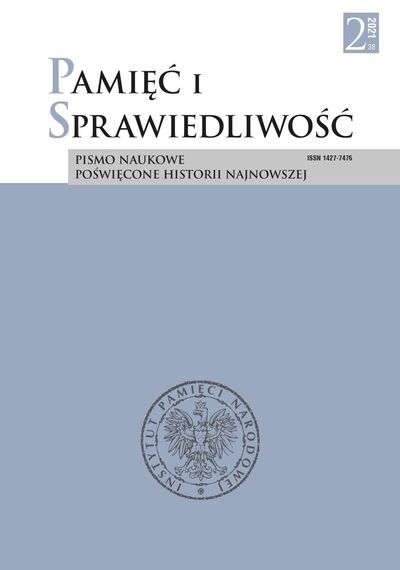Vol. 38 No. 2 (2021)
Tematem wiodącym 38 numeru „Pamięci i Sprawiedliwości” jest odrodzenie państwa polskiego w 1918 r. i walka o jego granice.
Różne środowiska polityczne w kraju, wykraczając poza ściśle wytyczone ramy programów partyjnych i praktycznych zadań, angażowały się w konstytuowanie niepodległości. Józef Piłsudski, Roman Dmowski i inni realizowali marzenie wcześniejszych pokoleń o wolnym państwie, mocno osadzonym terytorialnie. Państwie będącym partnerem dla mocarstw zachodnich, odgrywającym rolę regionalnego lidera. W tym niełatwym okresie pierwszych kilku lat suwerenności rządzący przeprowadzili udaną konsolidację wewnętrzną, podjęli wysiłek świadomego budowania tożsamości, a także skupili zbiorowe uczucia wokół zasadniczej idei, za jaką uważano obronę ojczyzny przed zewnętrznymi wrogami. Racją stanu II RP stała się walka z bolszewikami, następnie koncepcja poszukiwania ładu międzynarodowego, w którym Polska dysponowała określoną pozycją wynikającą z położenia terytorialnego. W tekstach przygotowanych przez cenionych autorów zaprezentowano te aspekty, formujące dzisiaj sposób myślenia Polaków, pokazując rozległość przestrzeni tematycznych łączących się z tytułowym zagadnieniem niniejszego tomu.
 Język Polski
Język Polski
 English
English
 Deutsch
Deutsch
 Français (France)
Français (France)
 Italiano
Italiano
 Русский
Русский


 PDF (Język Polski)
PDF (Język Polski)

